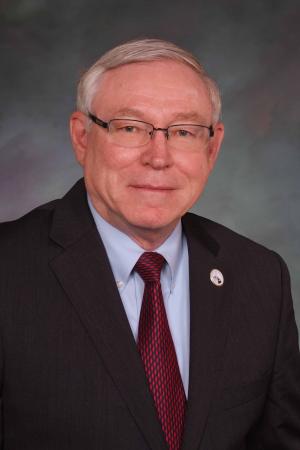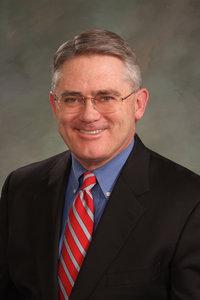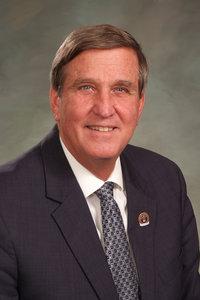DENVER — A Denver District Court Judge today issued a temporary restraining order against Colorado Senate President Leroy Garcia, D-Pueblo and Senate Secretary Cindi Markwell that prohibits them from refusing to read legislation in an intelligible manner.

The order also extends to “all other persons or entities in active concert or participation” with Garcia and Markwell. Specifically, the order prohibits anyone in their capacity for the General Assembly from:
“Refusing to read legislation, including (HB 19-1172) in an intelligible fashion absent the unanimous consent of all members present to dispense with such reading as required by Article V, Section 22 of the Colorado Constitution;
“Passing HB 1172 in violation of Article V, Section 22 of the Colorado Constitution by failing to read the bill out loud on two consecutive days absent the unanimous consent of all Members present to dispense with such reading.”

District Court Judge David H. Goldberg signed the order after Sen. John Cooke, R-Greeley; Sen. Bob Gardner, R-Colorado Springs; and Sen. Chris Holbert, R-Douglas County filed suit against Garcia and Markwell on Tuesday at 1:38 p.m.
The suit was filed in connection with Cooke’s request on Monday to have HB 1172 — a 2,023 page, non-controversial “clean-up” bill that was up for second reading — be read in its entirety. It was estimated it would take between 40 and 60 hours to complete the reading.

However, after about 3 ½ hours of human reading, Markwell had five computers brought in that read different sections of the bill simultaneously, ending the reading Monday evening, much sooner than predicted.
Cooke told Complete Colorado on Monday he did it to get Democrats attention that they were moving bills through the process entirely too fast.
Cooke said because the Colorado Constitution does not allow for filibustering, this was the only tool the minority had to slow down the process, and after leadership made it clear last week they were not going to voluntarily slow down the process, he had to act.
Under the rules of the Senate, any Senator can ask for a bill to be read in full and nothing can continue until its voted on.
“The Constitution says we can do this,” Cooke said. “We went to leadership last week and asked them to slow down, why rush it? We asked to let us have more debate. Basically they said, ‘because we can, get over it.’ ”
Cooke said the very next day, Sen. Rhonda Fields, D-Arapahoe went to leadership and asked to slow down a different bill. Although they continued that bill’s planned committee hearing, the bill Fields was concerned with has been held over a couple times, and has yet to be debated by the full Senate.
“They refused to work with us,” Cooke said. “They see us as irrelevant. They won’t talk about changes. They won’t listen to the industry. The only way to slow it down was this.”

Shortly after the suit was filed on Tuesday, the Joint Committee on Legal Services voted 6-4 along party lines authorizing state funds to pay for the legal expenses of Garcia and Markwell.
In the complaint Cooke, Holbert and Gardner pointed out that Article V, Section 22 states that every bill shall be read by title when introduced, and at length on two different days in each house unless a unanimous consent is given by all members present in the chamber where it’s being voted on.
Under the Constitution, the law is mandatory and if not followed, the bill voted on becomes invalid.
The complaint says when Garcia and Markwell allowed the bill to be read by five different computers at approximately 650 words per minute — a speed faster than comprehensible — and overlapping portions of the bill simultaneously, they violated the law.

When the computers were completed, HB 1172 was not voted on and laid over for second reading until Wednesday.
The complaint asks for the court to instruct Garcia and Markwell that when a Senator asks for a bill to be read in its entirety, they do so in an intelligible manner.
A hearing for a permanent order is set for 9 a.m., March 19 in Division 269 of Denver District Court.
Senate Democrats had not returned calls for comment at press time.
Holbert said in a prepared statement:
“We are happy and optimistic with the judge’s ruling to issue a temporary restraining order and look forward to arguing the case for the Colorado Constitution in court on Tuesday.”


